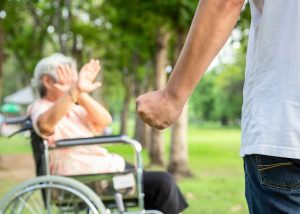Placing a loved one in a nursing home is one of the most difficult decisions families face, often coming after careful consideration and the hope that professional care will provide safety, comfort, and dignity. Unfortunately, nursing home abuse remains a serious problem that affects vulnerable elderly residents who depend on staff for their basic needs and wellbeing.
Recognizing the warning signs of potential abuse is crucial for protecting your loved one and ensuring they receive the respectful, safe care they deserve. Many signs of abuse are subtle or can be explained away by staff, making it important for family members to stay vigilant and trust their instincts when something doesn’t seem right.
Understanding what to look for helps you advocate effectively for your loved one while taking appropriate action if abuse is suspected or confirmed.
Recognizing Physical Warning Signs
Physical indicators often provide the most obvious evidence that something concerning may be happening to your loved one. While elderly residents may naturally develop some injuries or health issues, certain patterns or types of injuries should raise immediate red flags about potential abuse or neglect.
Unexplained bruises, cuts, or injuries that staff cannot adequately explain may indicate physical abuse. Pay particular attention to injuries in unusual locations, defensive wounds on arms or hands, or injuries that appear in various stages of healing, suggesting repeated incidents over time.
Bedsores or pressure sores that develop or worsen unexpectedly can indicate neglect, especially when they appear in areas that should be regularly monitored and treated by nursing staff. Proper care protocols exist to prevent and treat these conditions, so their presence may suggest inadequate attention to basic medical needs.
Poor hygiene, malnutrition, dehydration, or medication errors can all signal neglect that puts your loved one’s health and safety at risk. These problems often develop gradually but represent serious failures in basic care that nursing homes are legally required to provide.
Noticing Behavioral Changes
Emotional and behavioral changes in your loved one may indicate psychological abuse or trauma from mistreatment. These changes can be subtle but often represent significant departures from your loved one’s normal personality or behavior patterns.
Increased anxiety, fearfulness, or withdrawal from social interaction may suggest your loved one has experienced traumatic treatment or feels unsafe in their environment. Watch for signs that your loved one seems afraid of certain staff members or becomes agitated when specific caregivers enter their room.
Depression, sudden mood changes, or regression in cognitive function that cannot be explained by underlying medical conditions may indicate emotional abuse or severe neglect. While some changes are natural parts of aging or disease progression, dramatic shifts in personality or behavior warrant investigation.
Sleep disturbances, loss of appetite, or reluctance to discuss their daily activities may also signal problems with their care environment. Trust your instincts if your loved one seems different or uncomfortable during your visits.
Observing Staff Behavior
The way nursing home staff interact with residents and family members can provide important clues about the quality of care and potential problems within the facility. Professional caregivers should always treat residents with dignity, respect, and compassion.
Staff who seem rushed, overwhelmed, or indifferent to residents’ needs may indicate understaffing or poor management that can contribute to neglectful care. Watch for staff members who speak harshly to residents, ignore requests for help, or handle residents roughly during care activities.
Defensive or evasive responses when you ask questions about your loved one’s care may suggest staff are trying to hide problems or mistakes. Professional caregivers should welcome family involvement and be transparent about care plans and any incidents that occur.
High staff turnover, frequent use of temporary workers, or reluctance to allow family access to certain areas of the facility can all indicate management problems that may affect care quality and resident safety.
Taking Appropriate Action
If you suspect abuse or neglect, document everything you observe with detailed notes, photographs when appropriate, and dates of incidents or concerning behaviors. This documentation becomes crucial if you need to file complaints or take legal action to protect your loved one.
Report suspected abuse immediately to facility administration, state regulatory agencies, and local law enforcement if criminal activity is suspected. Most states have elder abuse hotlines that provide guidance and initiate investigations when abuse is reported.
Consider consulting with an elder abuse lawyer who specializes in nursing home cases, like those from firms like Williams Newman Williams, if you believe your loved one has been harmed through abuse or neglect. These legal professionals understand the complex regulations governing nursing homes and can help you understand your options for seeking justice and compensation.
An experienced elder abuse lawyer can also help you navigate the legal system while ensuring your loved one receives proper medical attention and protection from further harm. They can advise you on preserving evidence and connecting with medical experts who can evaluate your loved one’s condition.
Protecting Your Loved One
Regular visits, communication with staff, and staying involved in your loved one’s care provide the best protection against abuse and neglect. Your presence and attention demonstrate to staff that your loved one has advocates who care about their wellbeing.
Don’t hesitate to ask questions, request care plan meetings, or seek second opinions if you have concerns about your loved one’s condition or treatment. Your advocacy may be the most important factor in ensuring your loved one receives the safe, respectful care they deserve.
Trust your instincts and take action if something doesn’t seem right. Your loved one’s safety and dignity depend on your vigilance and willingness to speak up when problems arise.










